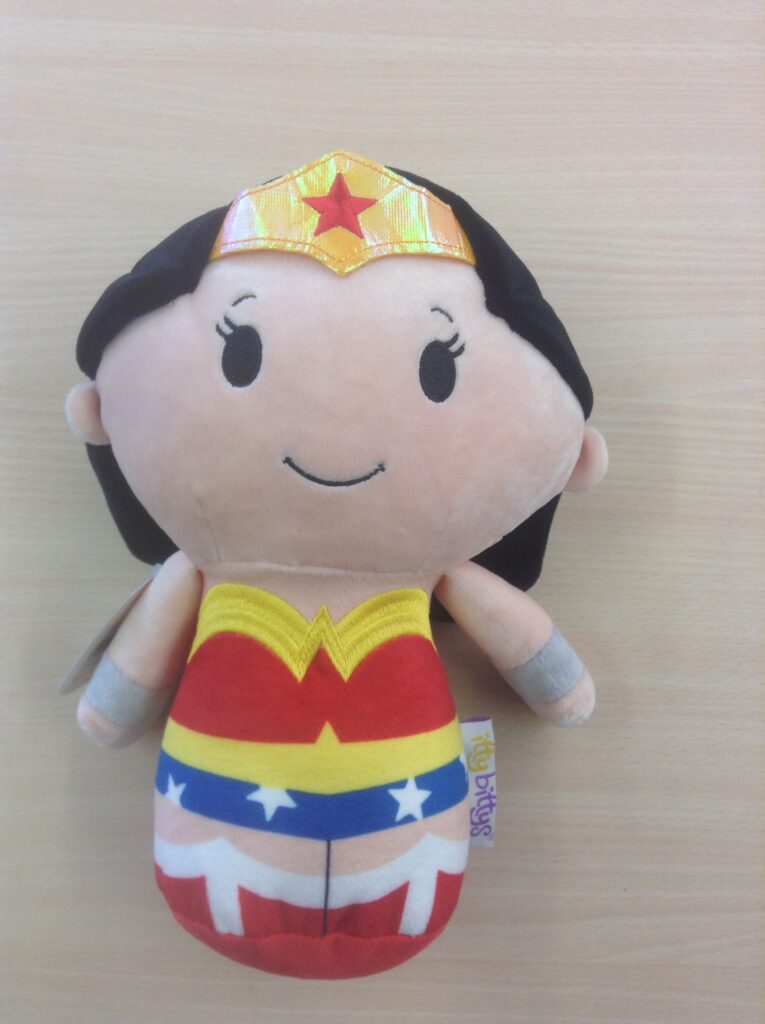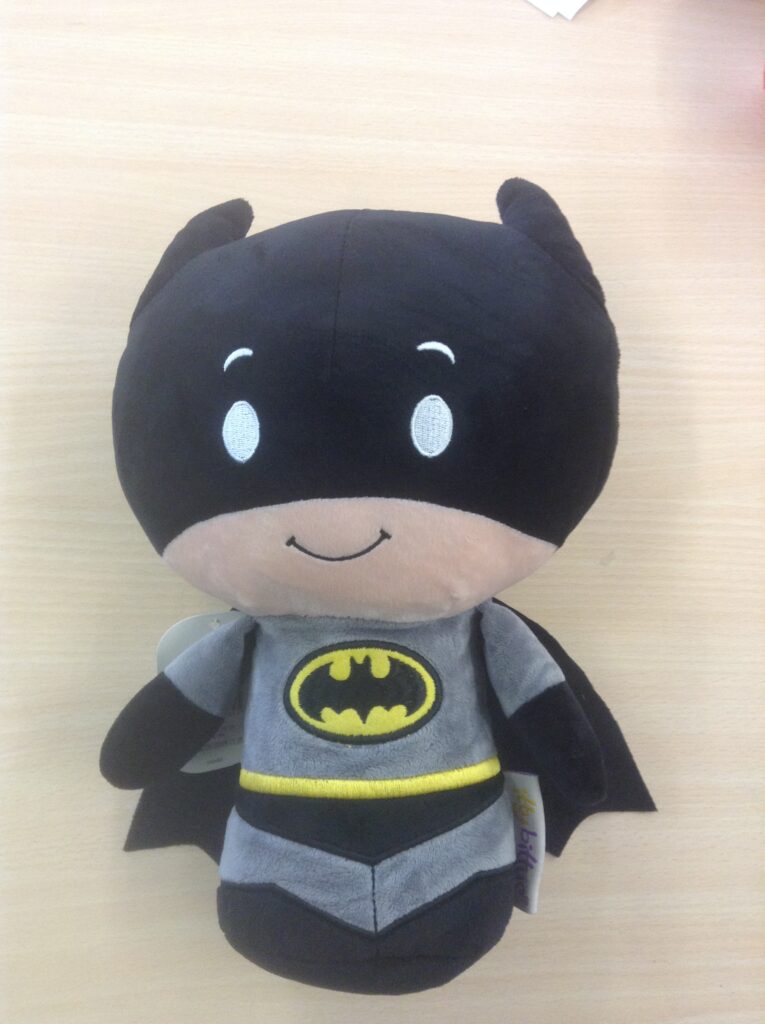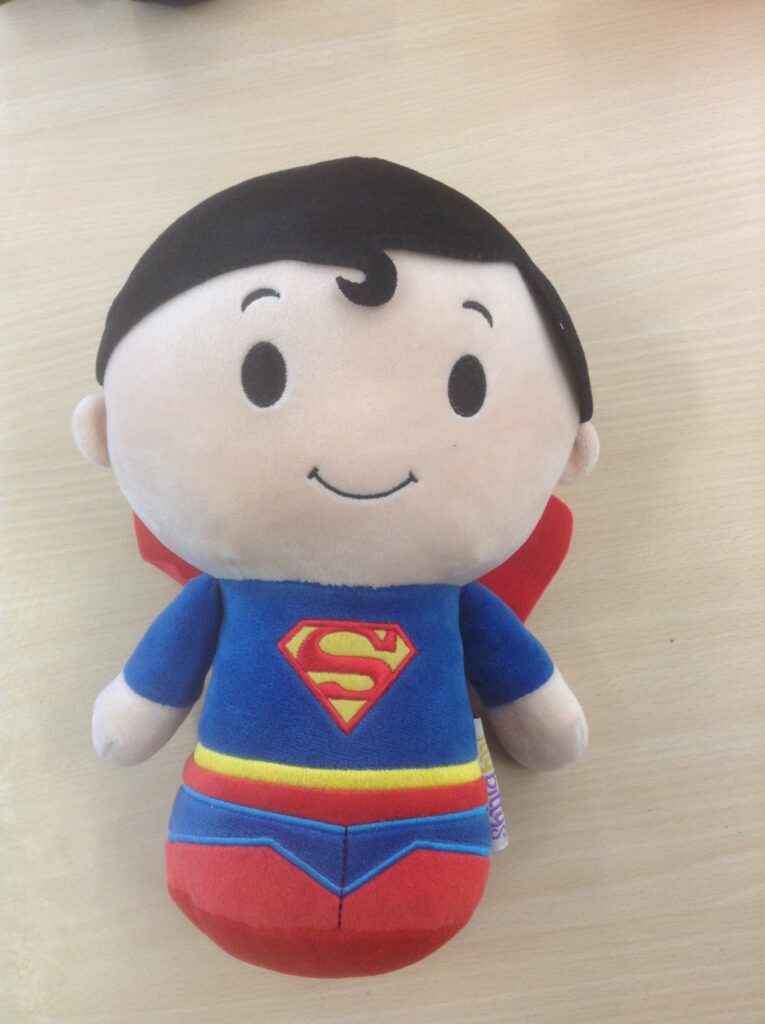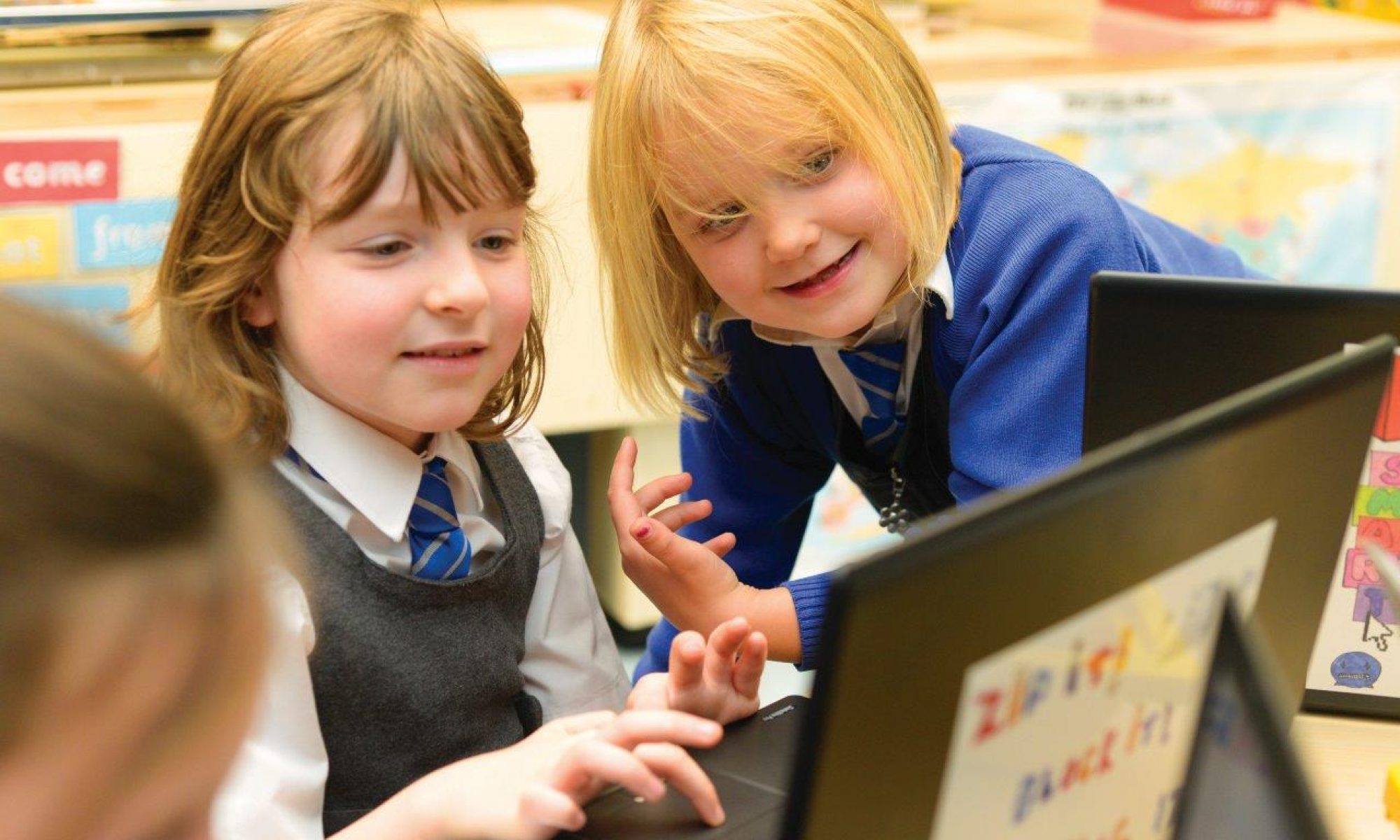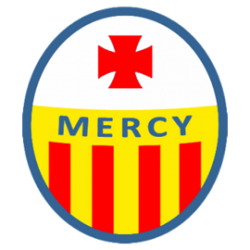The education for children at St. Adrian’s is based on the ‘Early Years Foundation Stage’ framework. These are government guidelines that set out the curriculum delivered to each child, from birth until the end of the Reception class. The framework is organised into the seven areas of learning. Our first priority is to ensure children are happy, settled and ready to learn.
You can access the Early Years Foundation Stage framework here.
In the stimulating and caring environment at St. Adrian’s, children learn to feel confident and able to learn through enjoyable and challenging play.
Play is a very important part of growing up. From birth to five years old, children grow, develop and learn rapidly. They choose their friends and develop their own preferred ways of learning. This involves finding out the answers to questions, developing the confidence to ‘have a go’ and learning new skills, as well as consolidating and extending what has already been discovered.
When children start school, they have already learnt a lot from parents at home and in pre-school. We want to build on what children already know and can do, continually taking them to the next stage.
Children learn many new skills from being involved in purposeful, structured play, both indoors and outdoors. Whilst in the Foundation Stage, children spend periods of time involved in activities planned by an adult and periods of time doing activities they have chosen themselves.
You can access the Nursery handbook here.
You can access the Reception handbook here.
The Learning Environment
The indoor and outdoor ‘classrooms’ are arranged to give children plenty of space to move around, to work individually and in groups, large and small.
Resources are well organised and labelled so that children know where to find what they need and can be independent in their play (and tidying!). This means that adults can spend more time joining in with children’s learning.
Through this supported play, children can explore, develop and use their curiosity and imagination to help them make sense of the world in a secure environment. They learn skills, build up ideas and concepts, think creatively and imaginatively and communicate with others as they investigate and solve problems.
Let’s find out more about the areas of learning
Each of the following learning areas have early learning goals. Individualized learning and care enhances the development of every child to help them work towards the early learning goals and give them the best possible start in life.
Personal, Social and Emotional Development
Children’s personal, social and emotional development is crucial for children to lead healthy and happy lives, and is fundamental to their cognitive development. Nursery and Reception classes provide a secure environment for children to develop as confident individuals. Opportunities are provided for each child to become a valued member of a group and community so that confidence and self-esteem are promoted. Children are encouraged to work and play cooperatively and establish effective relationships with other children and adults. They have many opportunities to demonstrate their independence and seek help where needed, developing an understanding of what is right, what is wrong and why. The other six areas of learning are underpinned by secure personal, social and emotional development.



Communication and Language
We provide a stimulating environment in which the children can listen and respond to stories, non-fiction writing, songs, nursery rhymes and poems and take part in role-play with confidence. The children love to discuss the text, retell stories through small world activities and make up stories of their own. The number and quality of the conversations they have with adults and peers throughout the school day in a language rich environment is crucial. By commenting on what children are interested in or doing, and echoing back what they say with new vocabulary added, practitioners help to build children’s language acquisition.




Physical Development
Physical development in the Foundation Stage at St. Adrian’s is about providing opportunities for children to develop and improve their skills of coordination, control, manipulation and movement both indoors and outside. Physical activity is vital in children’s all around development, enabling them to pursue happy, healthy and active lives. Gross (large body muscles) and fine (small muscles in hands and fingers) motor experiences develop incrementally throughout early childhood. The development of a child’s strength, coordination and positional awareness is developed through movement opportunities with both objects and adults. Gross motor skills provide the foundation for developing healthy bodies and social and emotional well being. Fine motor control and precision helps with eye-hand coordination, which is later linked to early literacy and writing.

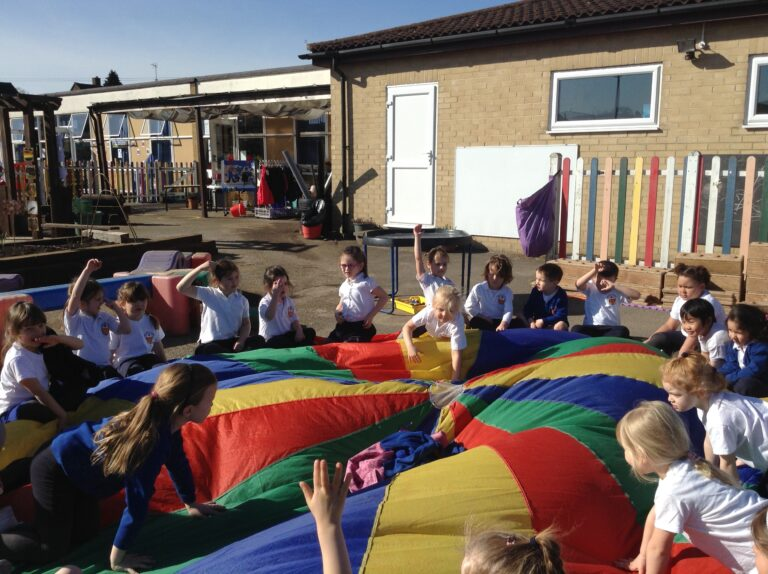
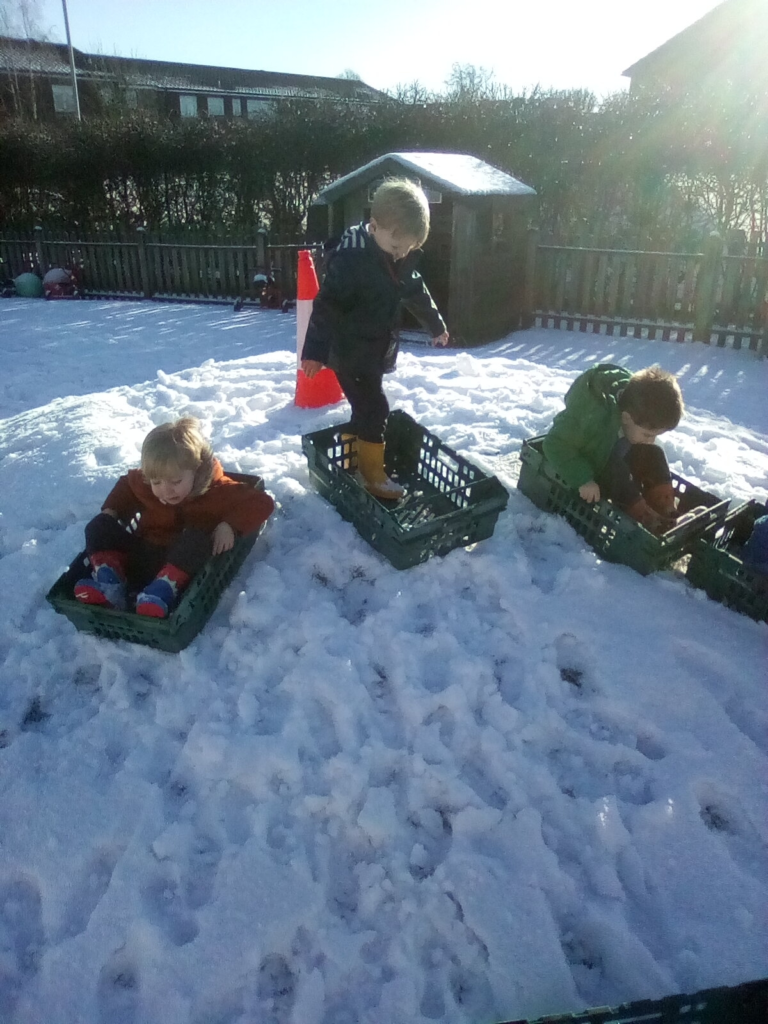
Literacy
Comprehension
Language comprehension (both reading and writing) develops when adults at St. Adrian’s talk with children about the world around them and the books (stories and non-fiction) they read with them, and enjoy rhymes, poems and songs together.
The children will learn comprehension skills alongside learning to decode the words on the page. This will help them to make sense of what the words say and what the text means. These skills help children become keen and confident readers.
Word Reading
The children will learn about rhyming words, listen for sounds in words, recognise letters and use these to blend words. They will be introduced to letters through the Letters and Sounds programme and develop a love for books from the school reading scheme as well as from the class library. Children learn to enjoy words and language. They love to sing rhymes and share books with others.
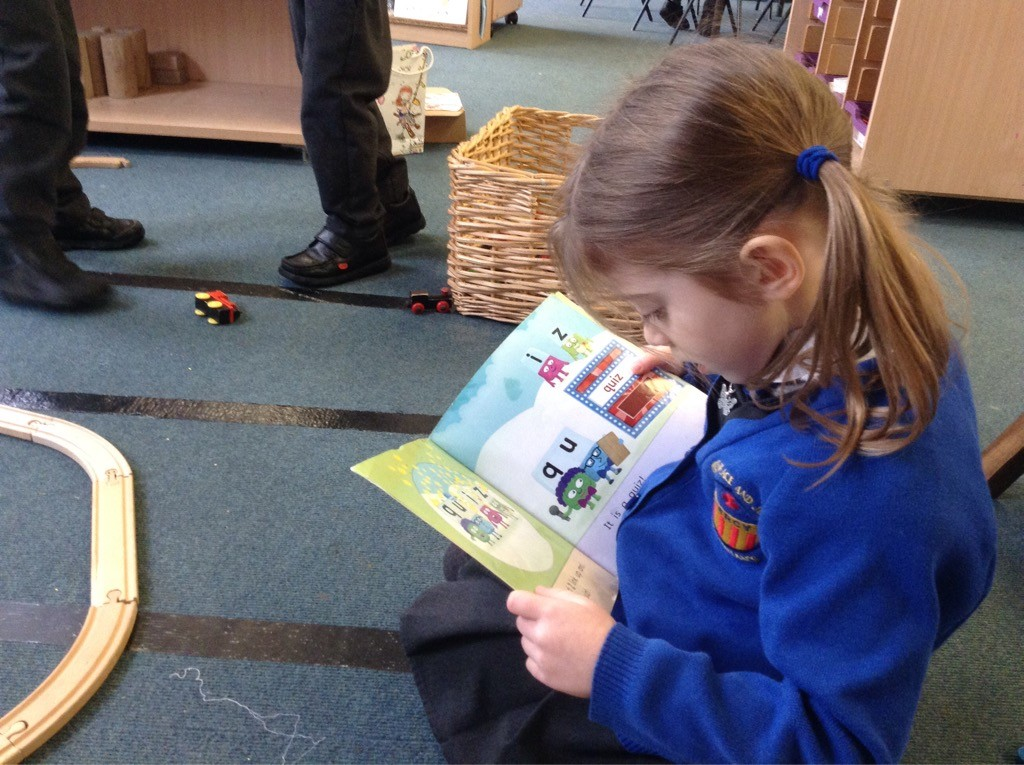
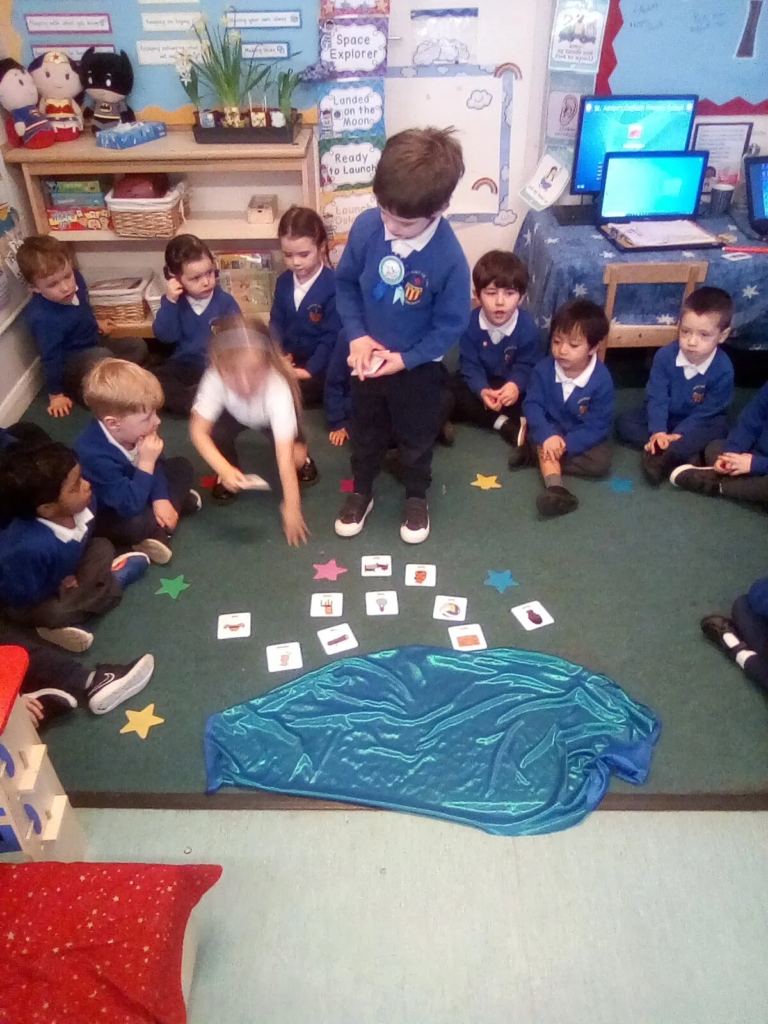
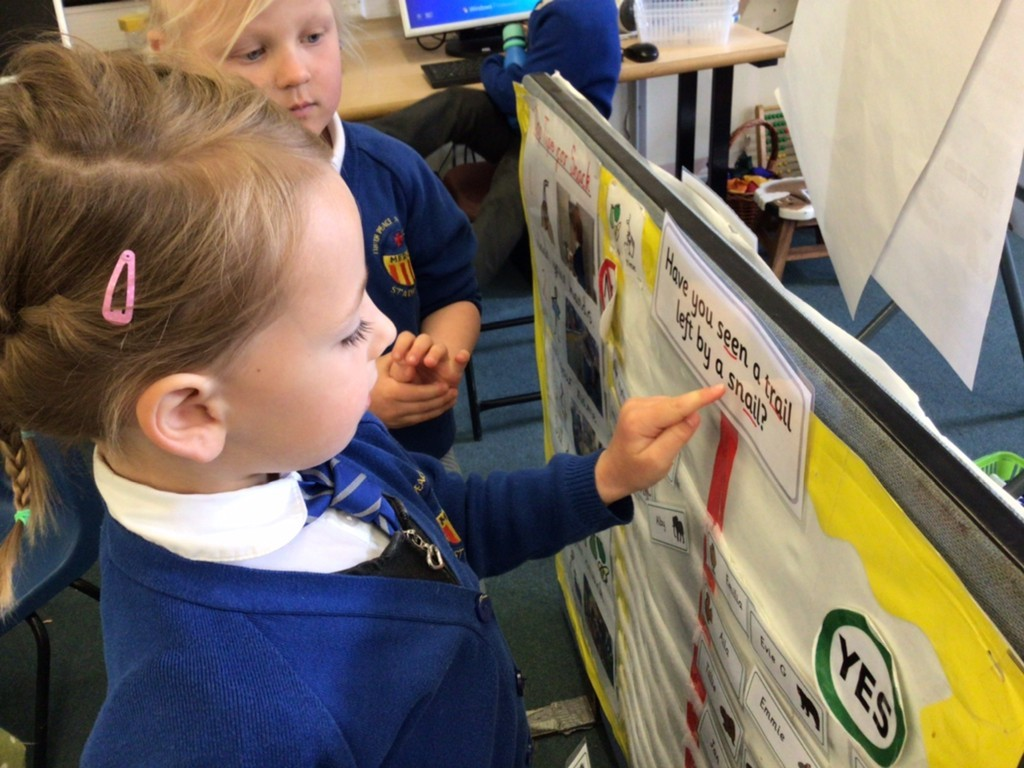

Writing
Children are encouraged to make marks and use pictures, symbols, letters and familiar words to communicate meaning. They experience a wide range of writing tools and are encouraged to hold them carefully and form letters correctly.
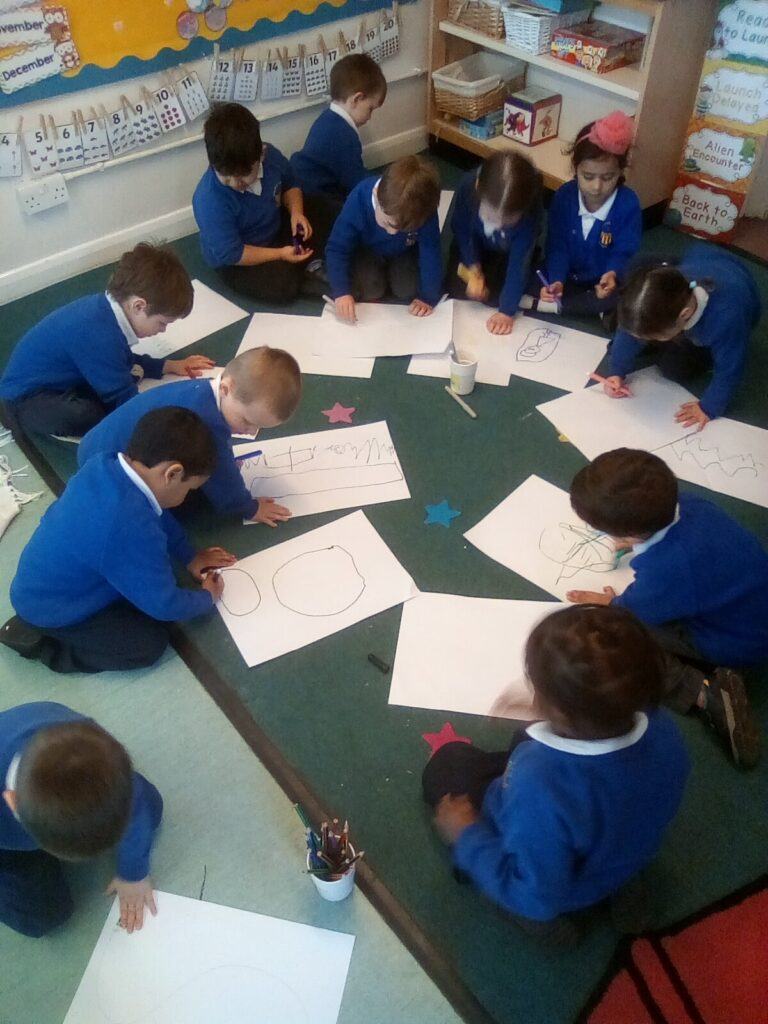
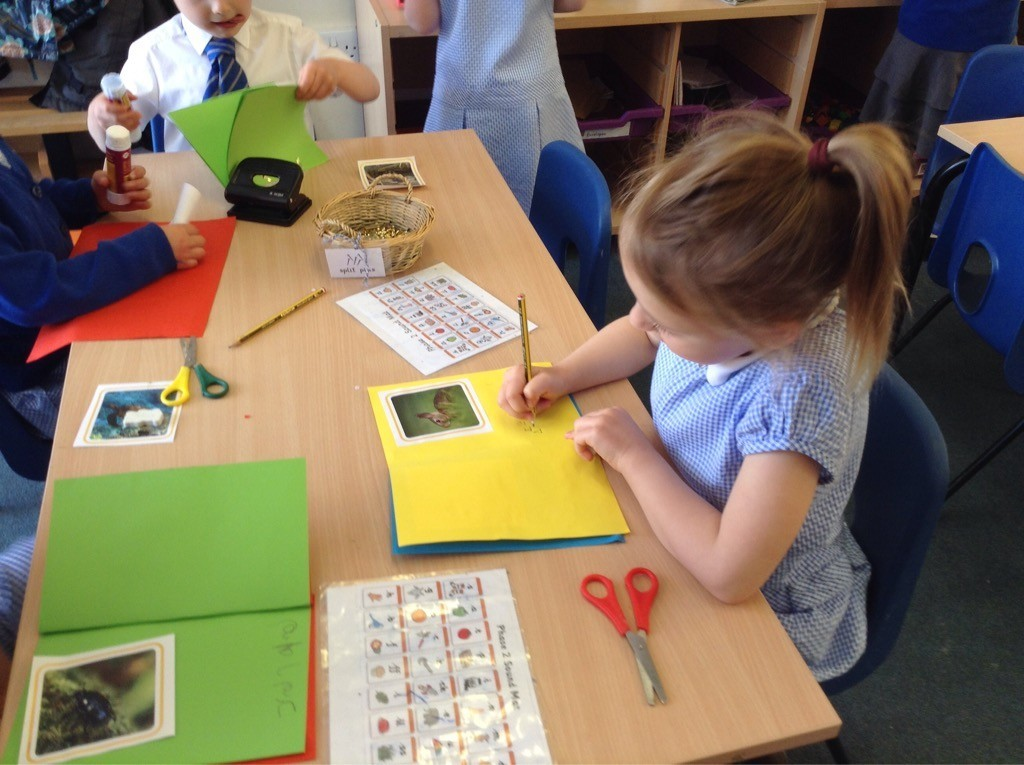
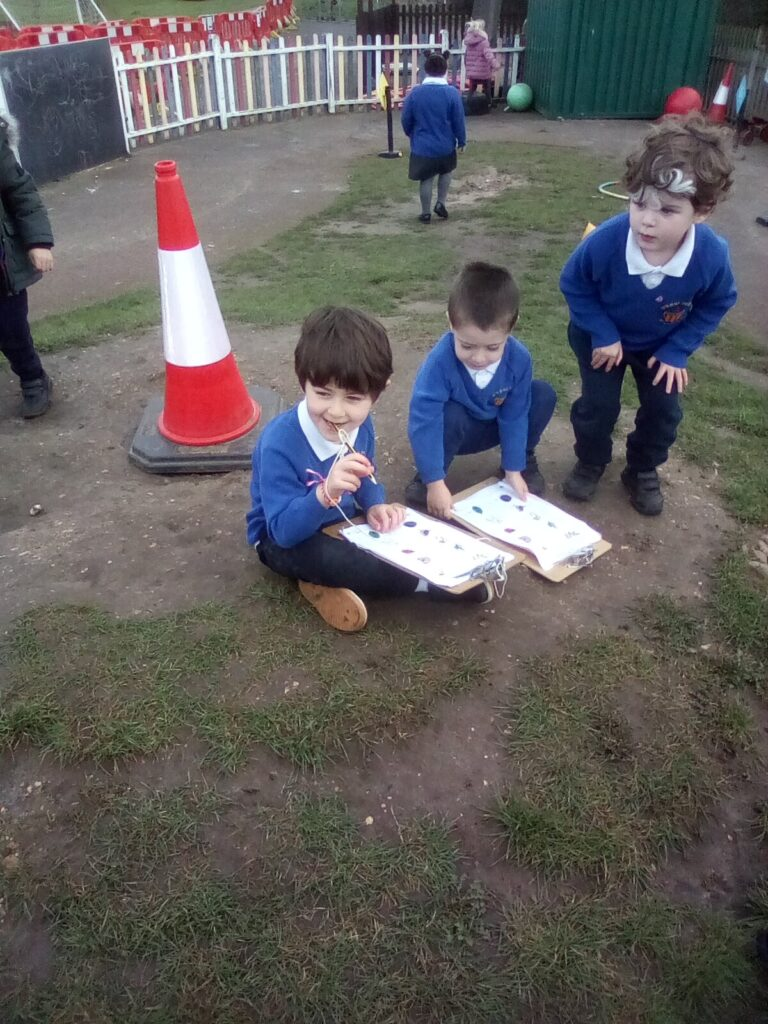

Children develop good small muscle manipulative skills in their hands and fingers before they can form letters.


Mathematics
Through practical activities the children are encouraged to sort and match objects by colour, size and shape, and to recognise, recreate and devise their own patterns. They experience counting games and activities, number rhymes, songs and stories. They learn to use mathematical understanding to solve practical problems. Our curriculum also includes rich opportunities for children to develop their spatial reasoning skills across all areas of mathematics. We believe that it is very important for the children to develop positive attitudes and interests in mathematics, look for patterns and relationships, and spot connections.

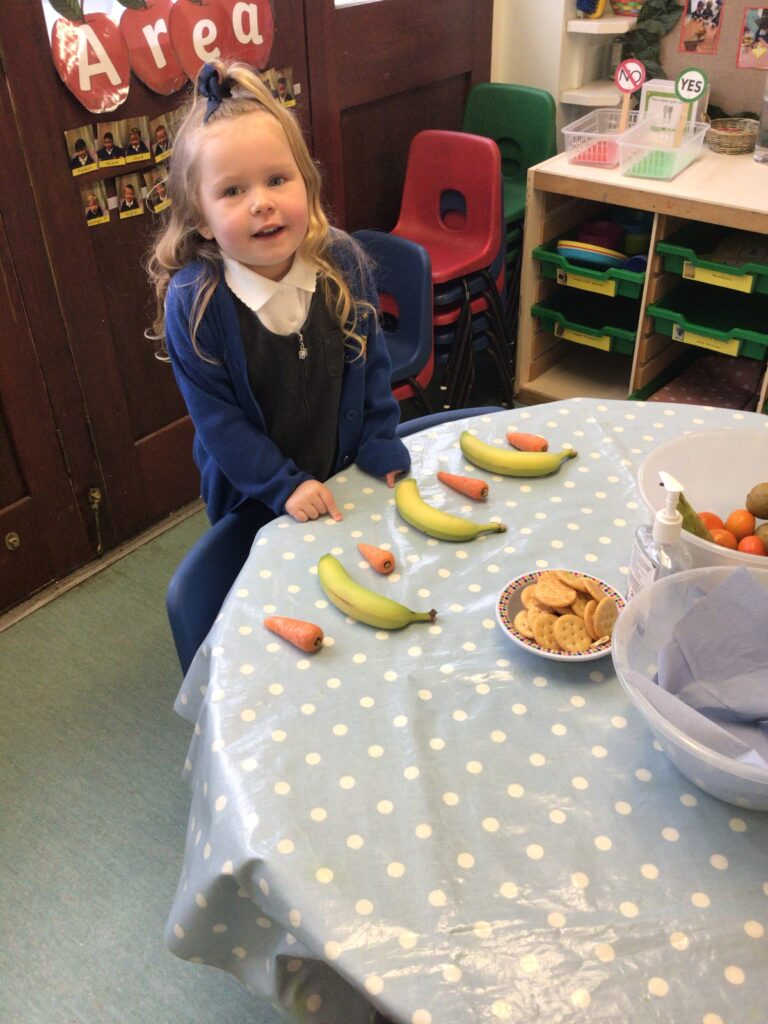
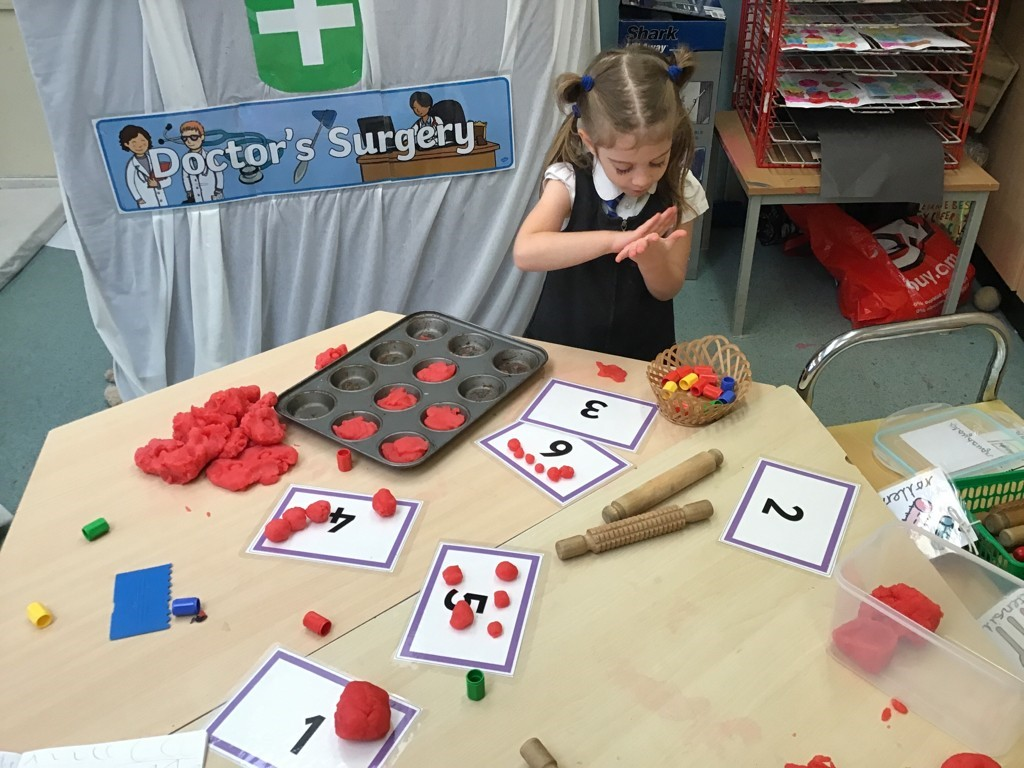
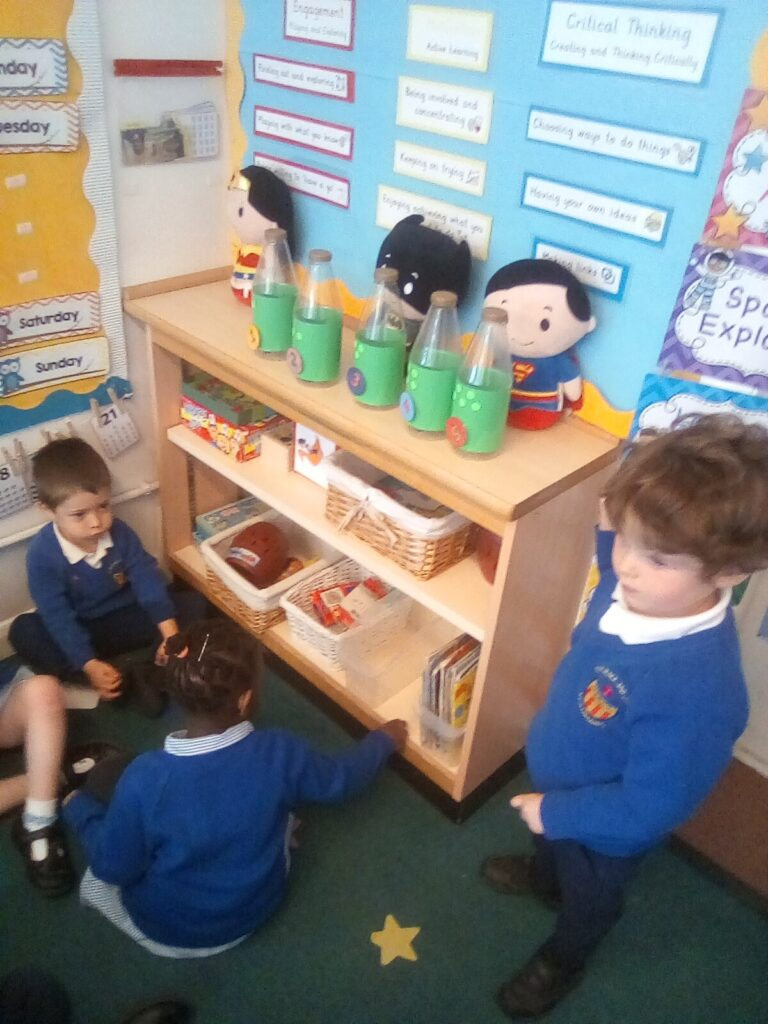
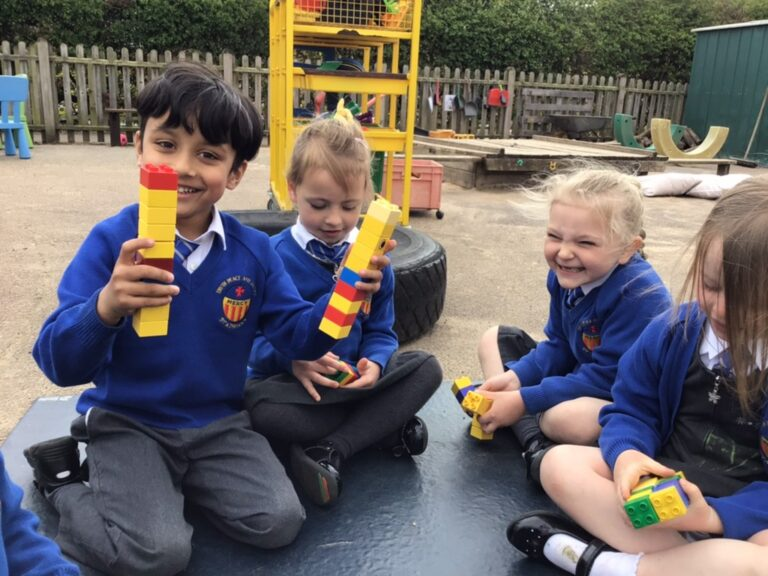
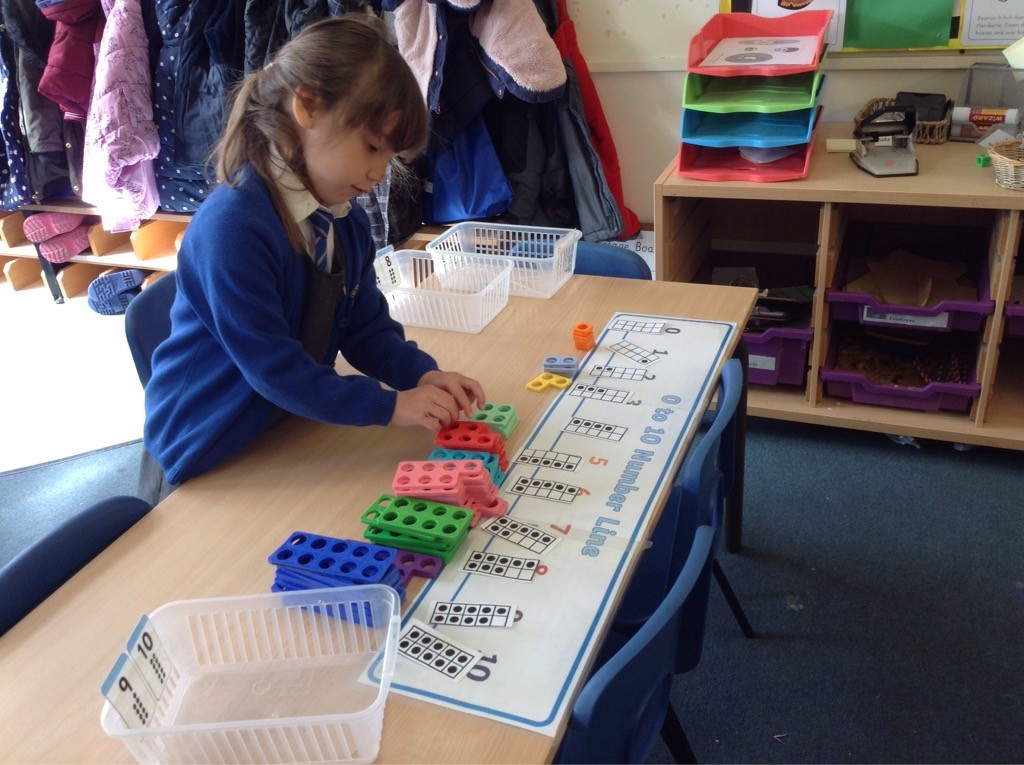
Understanding the World
In this area of learning, children are developing the crucial skills of knowledge and understanding that help them to make sense of their physical world and their community. They are encouraged to solve problems and find out about the world around them through using their five senses of sight, smell, touch, taste and hearing. This forms the foundation for later work in science, design and technology, history, geography, and computing.
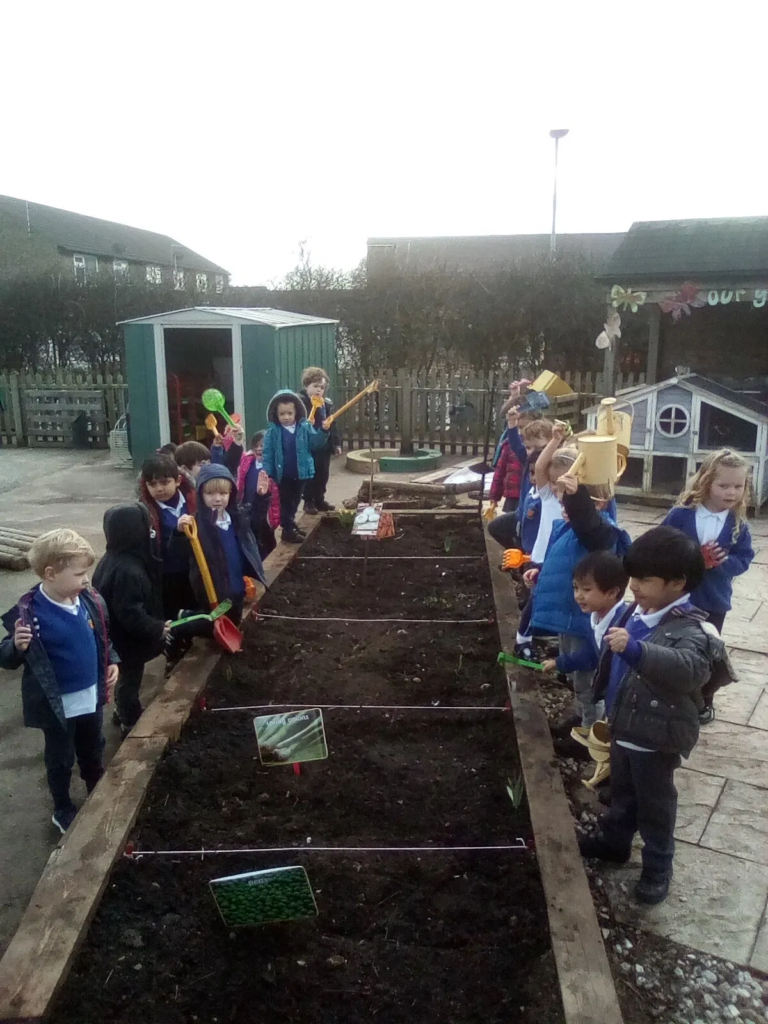
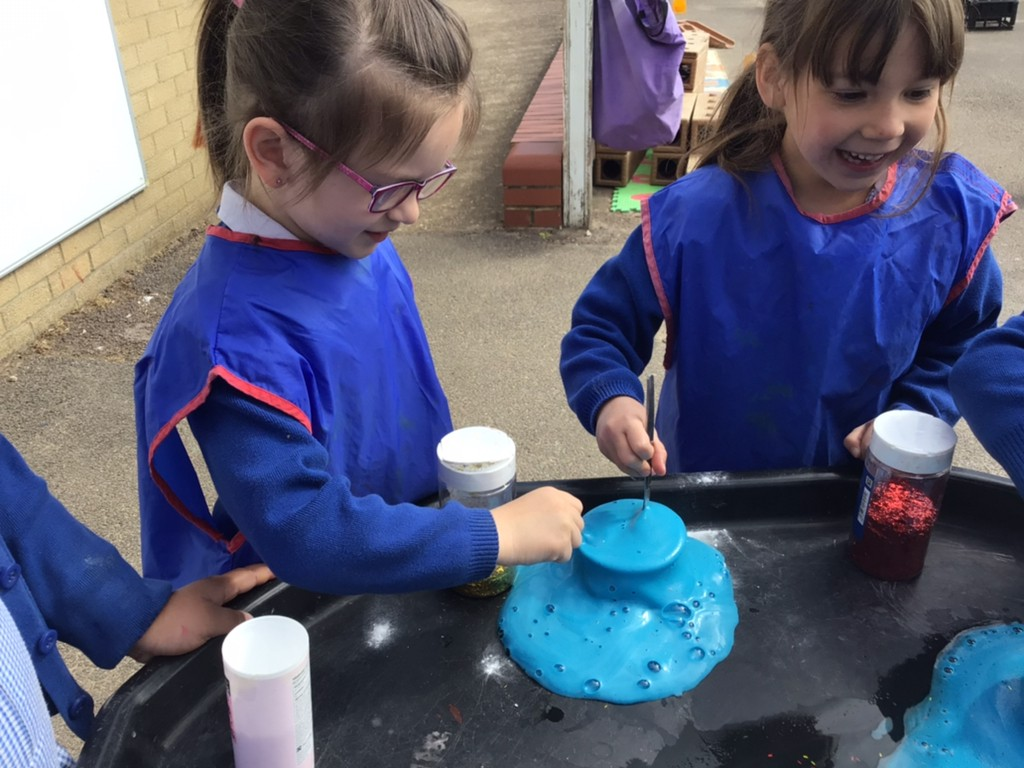
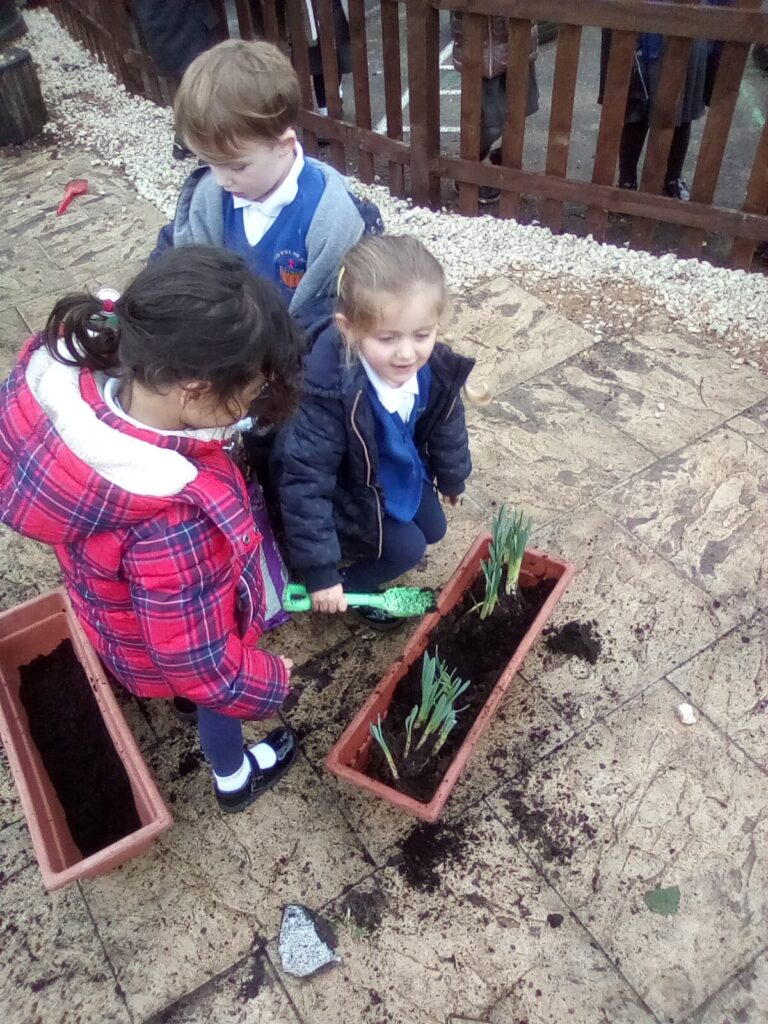
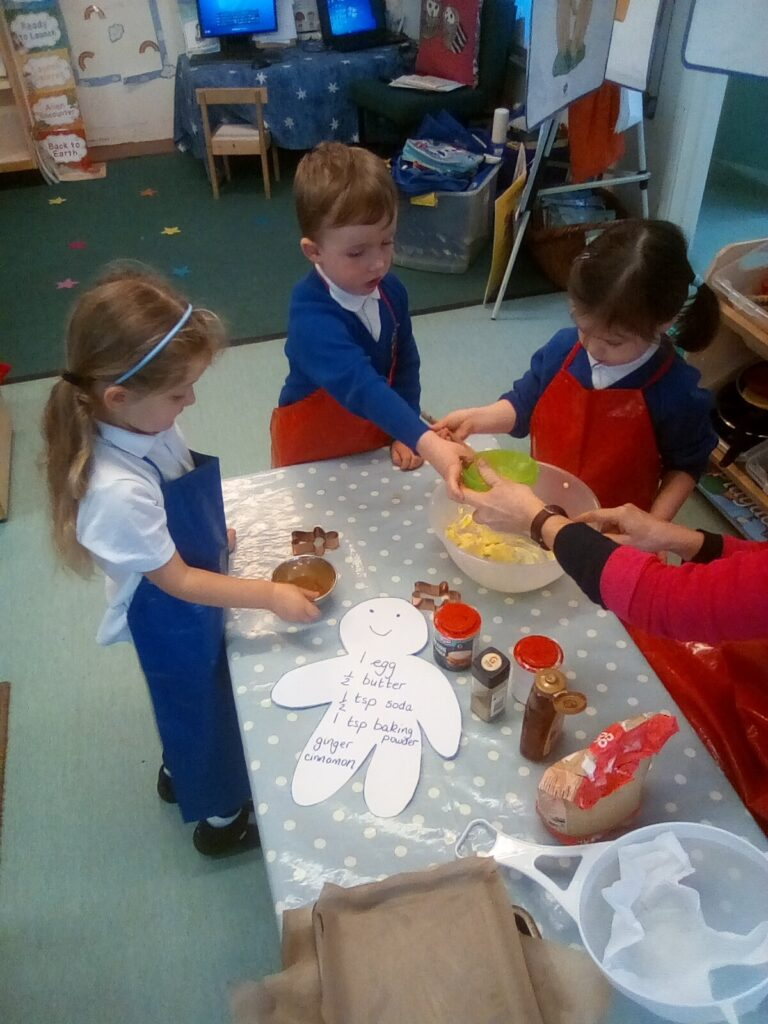
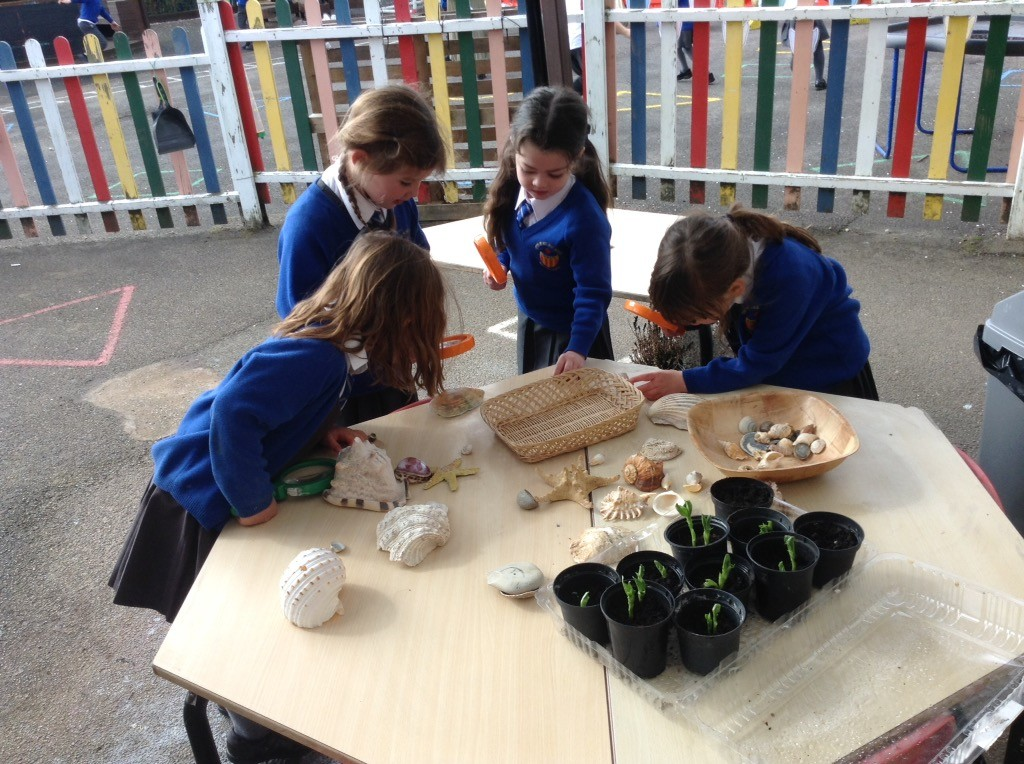

Expressive Arts and Design
Creativity is fundamental to successful learning. Being creative enables children to make connections between one area of learning and another and so extend their understanding. We provide a huge range of practical activities that promote creativity through art, music, dance, role-play and imaginative play. The frequency, repetition and depth of children’s experiences are fundamental to their progress in interpreting and appreciating what they hear, respond and observe.
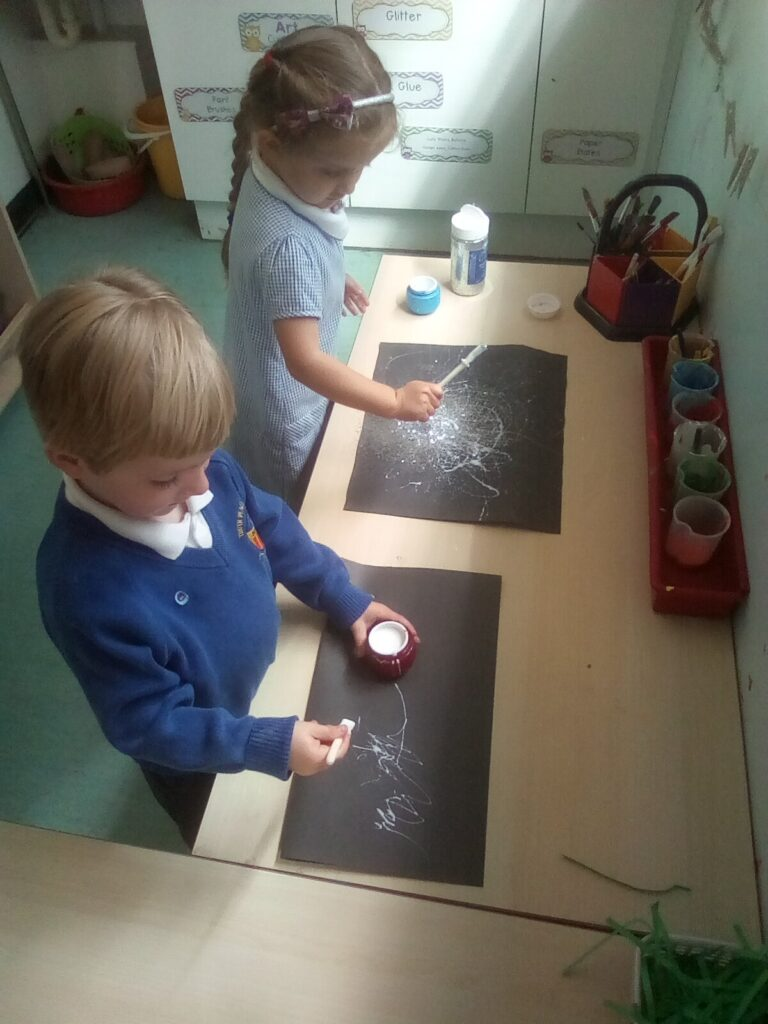
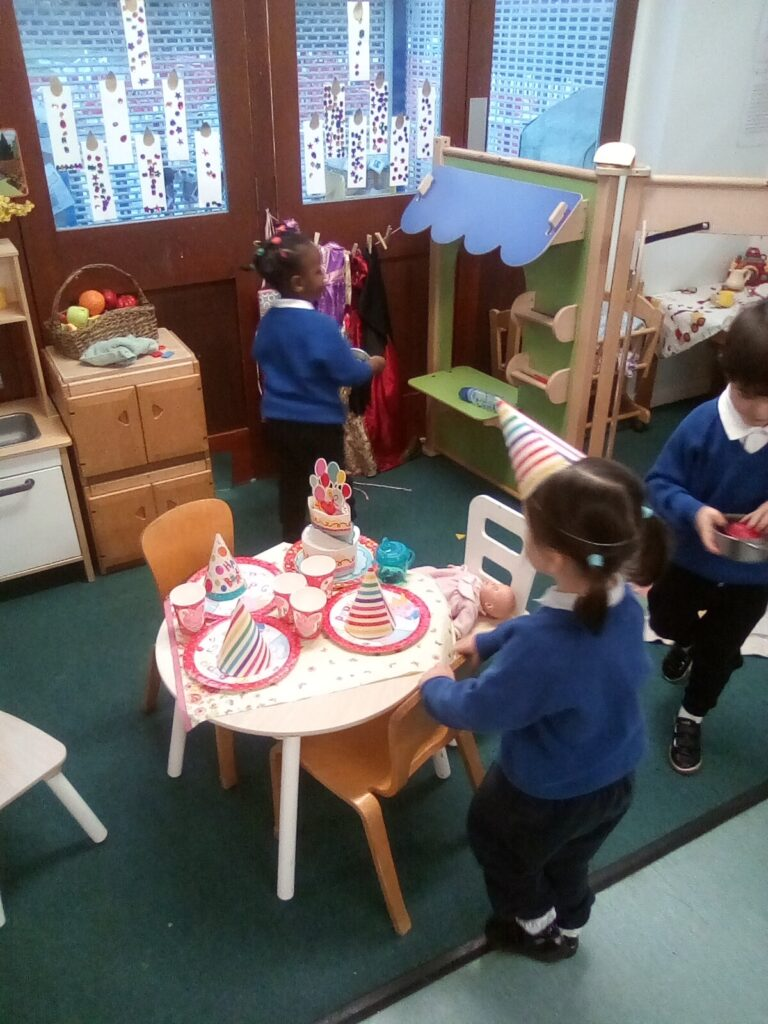
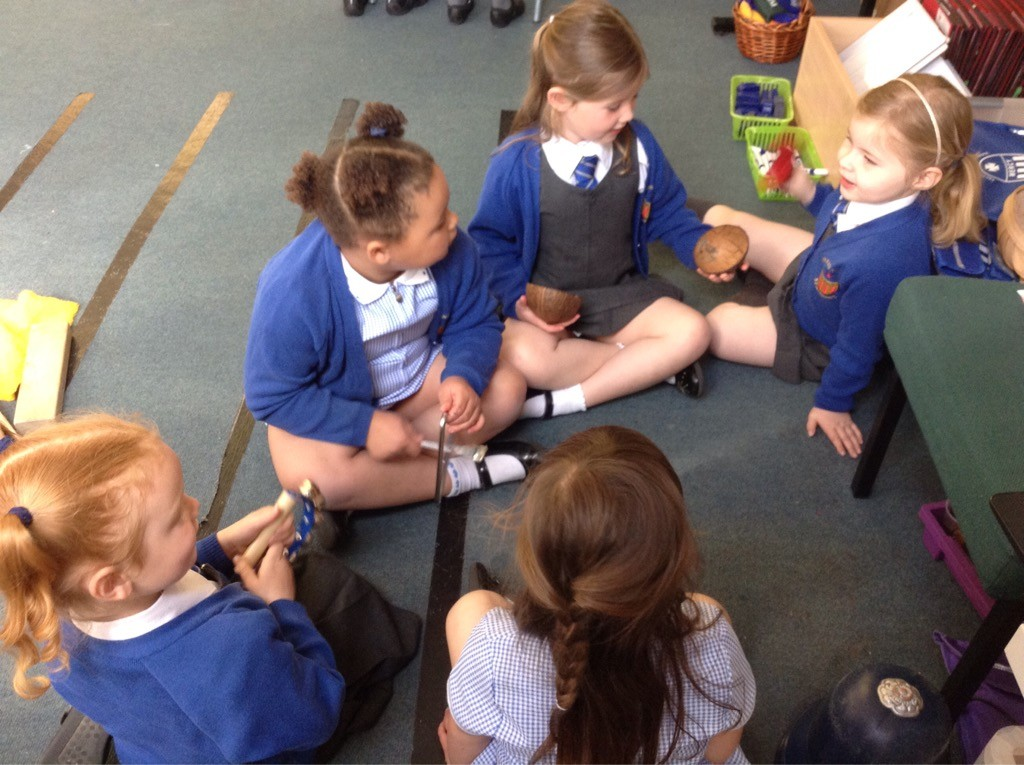
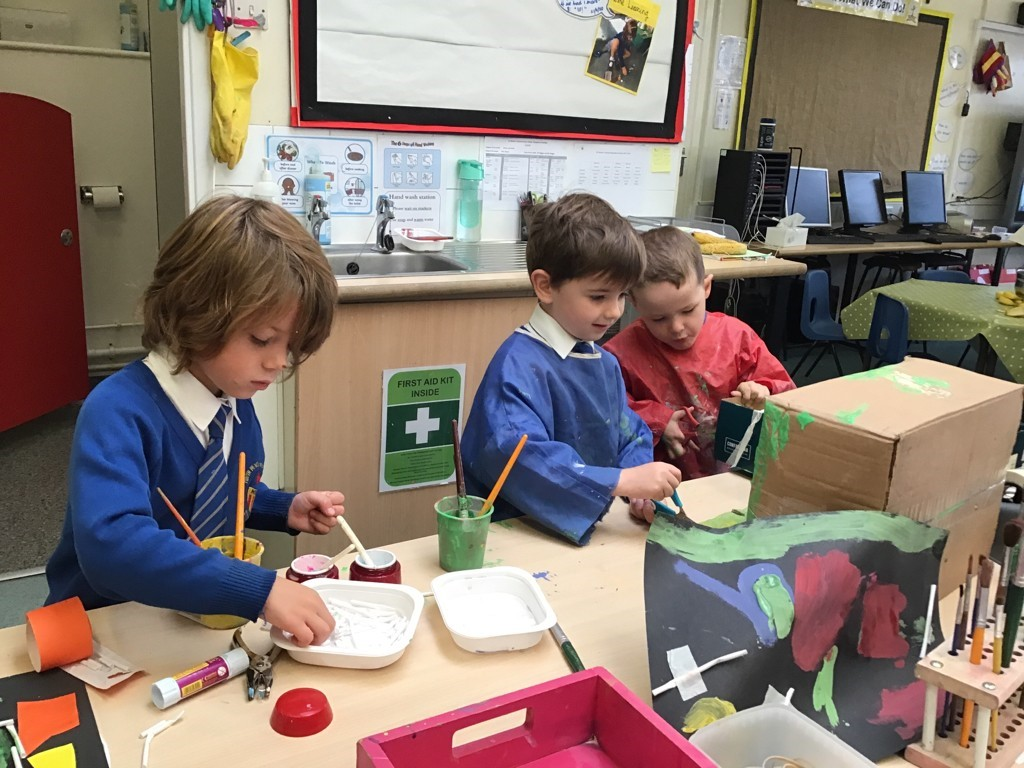

Religious education
In the foundation stage religious education drives the whole curriculum. Through engaging, practical, integrated activities, children can learn more about themselves, other people and the world around them and develop their religious knowledge, skills and understanding. Religious education plays an active contribution to the areas of learning outlined in the curriculum for the foundation phase but has a particular and important contribution to personal and social development, communication and language, literacy, understanding of the world, art and design.
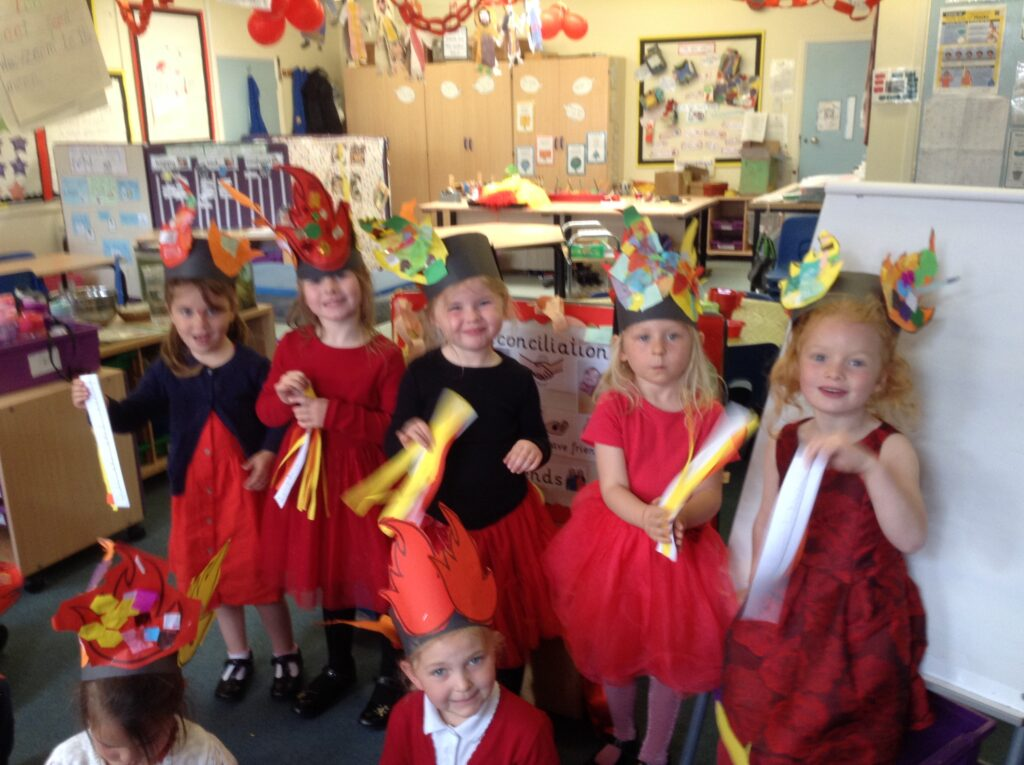
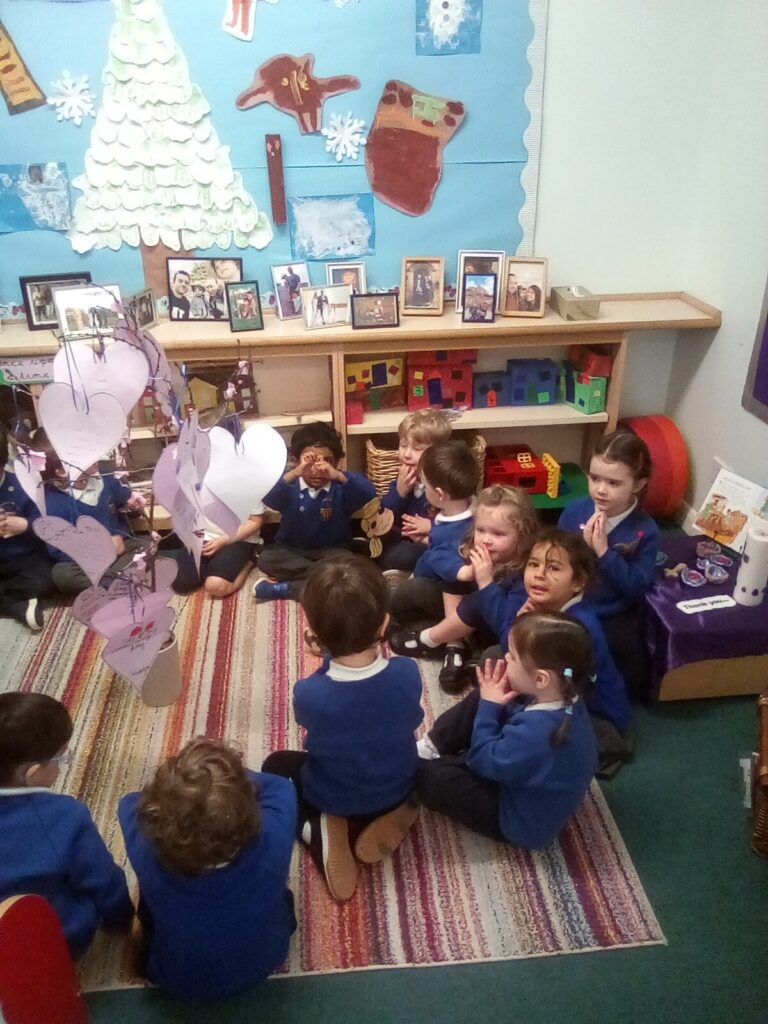
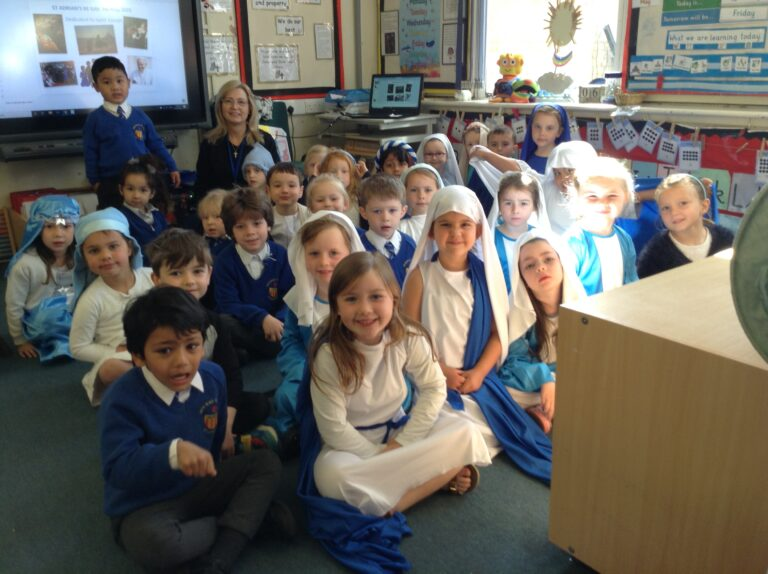
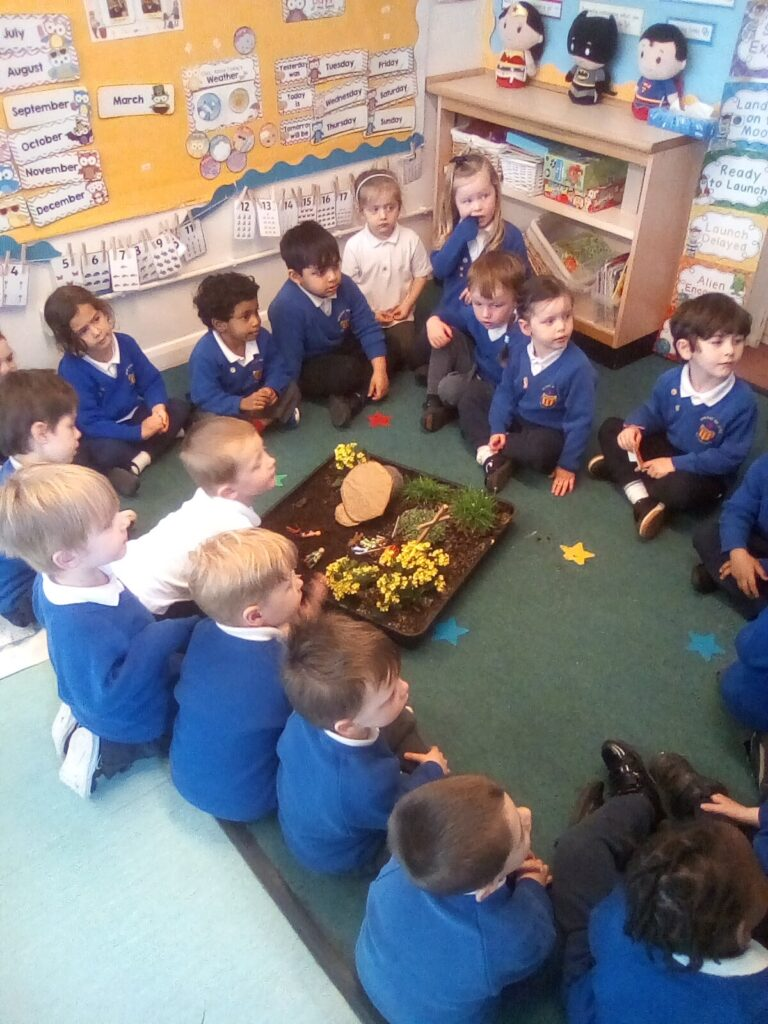
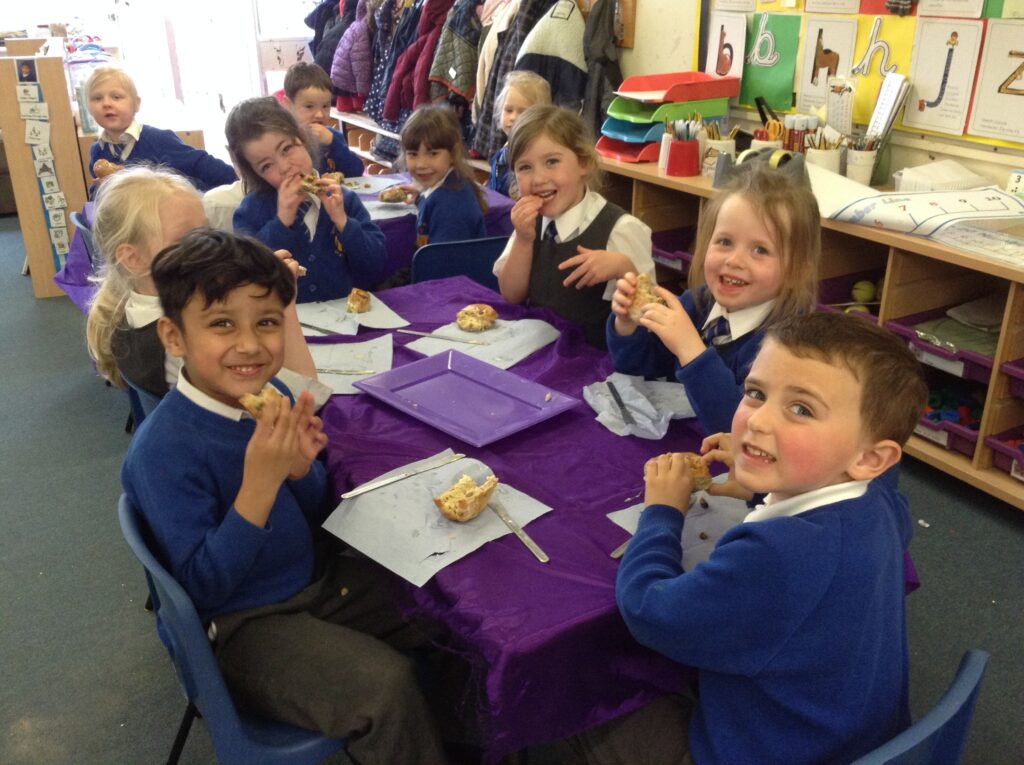

Characteristics of Learning
There are three main characteristics of learning outlined in the Early Years Foundation Stage curriculum.
- Playing and exploring – children investigate and experience things and “have a go”.
- Active learning – children concentrate and keep on trying if they encounter difficulties and enjoy their achievements.
- Creativity and thinking critically – children have and develop their own ideas and make links between ideas, and develop strategies for doing things.
At St. Adrian’s we focus on learning behaviours and developing the language of ‘how I am learning’. Our learning super heroes help us talk about how we are learning:
